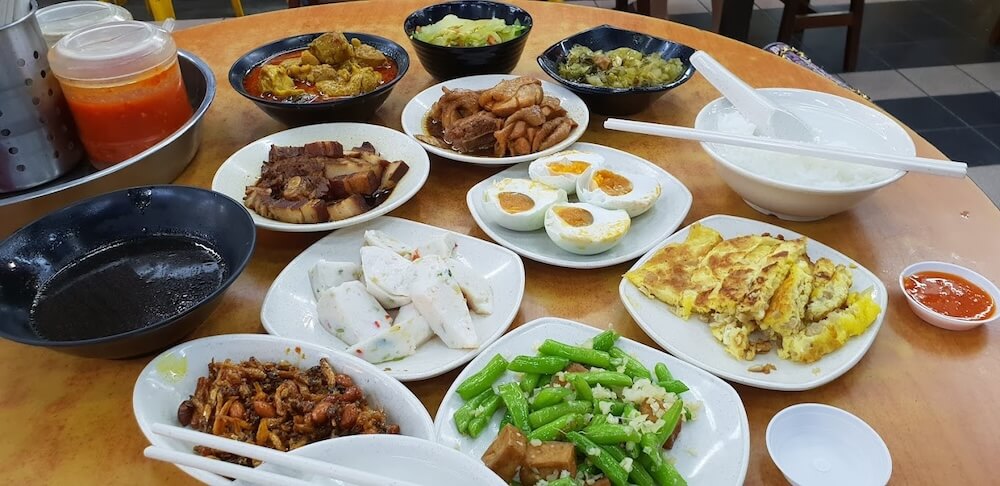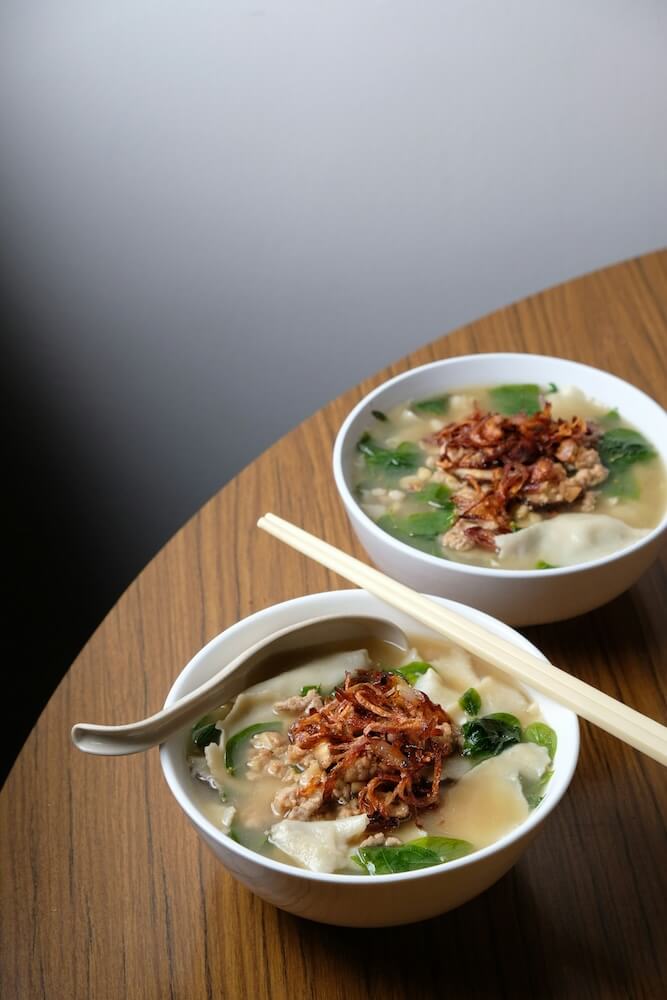With So Many Types Of Kopi In Singapore And Sometimes No Menu, What Kopi Can You Order?
Coffee in this part of Southeast Asia is an interesting beast. It’s commonly (and fondly) referred to as “kopi” by locals, which is a Malay word for “coffee”.
Kopi is essentially Singapore’s hand-brewed local coffee which can be found in Singapore’s coffee shops, also known as kopitiams.
Fun Fact: Did you know that kopitiam is a portmanteau of the Malay word “kopi” (coffee), and the Hokkien dialect word “tiàm” (shop)?
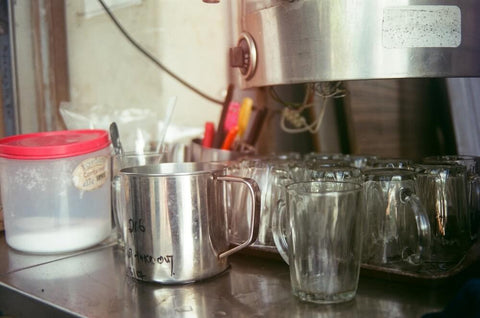
Most of us are familiar with the usual kopi peng, kopi-O, and even yuanyang when it comes to ordering coffee. But did you know that there are over 27 types of kopi that you can order and try at your nearest HDB kopitiam or at popular kopitiams like Ya Kun Kaya Toast?
We’ve compiled a comprehensive list of kopi you can try, and sorted them into 4 distinctive types so you can easily get into the local kopi-culture without much difficulties:
1. Kopi with no milk
2. Kopi with condensed milk
3. Kopi with evaporated milk
4. Fun kopi variations
If you need your daily cup of joe to function, you can even make it your goal to check off all 27 types within a month! Just remember to order kopi with a side of kaya toast (coconut jam and slabs of butter on toast), and perhaps a side of soft-boiled eggs too for a complete, delicious meal!
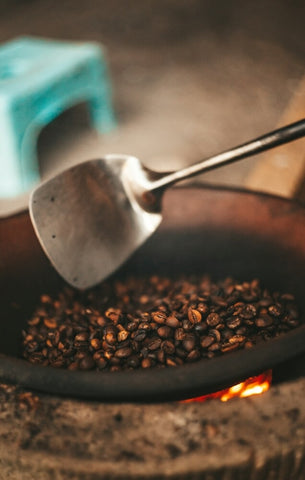
But First…What Kind Of Coffee Is Used In Singapore?
Kopi in Singapore's traditional coffee shops is hand-brewed using Robusta coffee beans, contrary to Arabica coffee beans which you will typically find in western countries or cafes serving espresso-based coffee.
The Robusta coffee beans are roasted with margarine and sugar in a wok, with the occasional boutique brands offering butter-roasted beans at a more premium price. This gives kopi its signature aromatic nuttiness with a slight oiliness that really enhances its flavour.
These coffee beans are then ground into coffee powder which is then used to hand-brew our favourite local kopi. Did you know that you can also roast your own beans without an oven in the Cosmo Wok? Give it a try for a taste of literal home-brewed coffee!
27 Types Of Kopi (Coffee) You Can Order Just Like A Local In Singapore’s Many Kopitiams
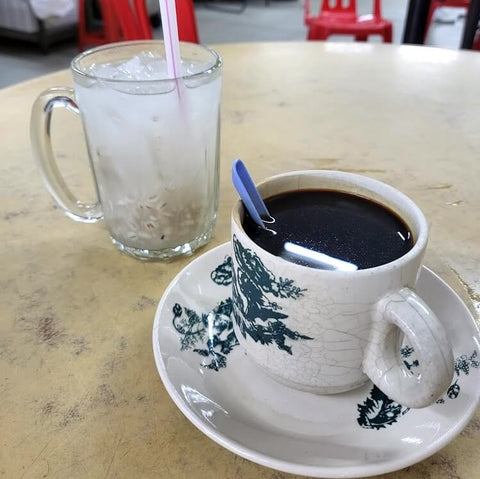
Coffee With No Milk
1. Kopi-O
Plain black coffee with sugar.
2. Kopi-O Peng
Just like Kopi-O only iced, making it plain black iced coffee with sugar.
3. Kopi-O Kosong
Plain black coffee without sugar. It’s the local equivalent of an Americano or Long Black.
4. Kopi-O Po Kosong
Plain black coffee diluted with more water and no sugar. For days where you simply want a taste of plain coffee without the caffeine hit.
5. Kopi-O Gau Kosong
Plain black coffee with a higher concentration of coffee over water. The direct opposite of kopi-O po kosong.
6. Kopi-O Di Lo Kosong
Extra thick and strong undiluted black coffee. Local coffee at its most undiluted, bitter state.
7. Kopi-O Siew Dai
Black coffee with less sugar. Perfect for days where you want only a hint of sweetness in your daily cuppa.
8. Kopi-O Gah Dai
Black coffee with extra sugar for a boost in sweetness. This is typically ordered when you want both a caffeine hit and sugar rush, but you’re lactose intolerant.
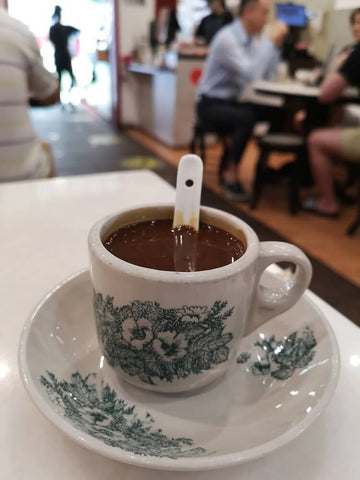
Coffee With Condensed Milk
1. Kopi
The OG and traditional classic black coffee with condensed milk and sugar. The most popular drink to be ordered in kopitiams because of its rich, creamy texture and bold flavour.
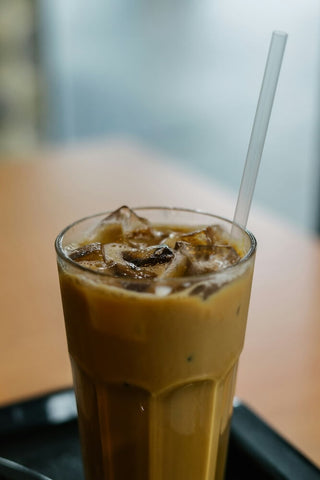
2. Kopi Peng
The iced version of the classic kopi black coffee with condensed milk. It’s essentially just kopi but with the added word “peng” to say “iced”.
3. Kopi Gau
Strong black coffee thanks to its higher coffee to water ratio, completed with condensed milk and sugar.
4. Kopi Siew Dai
Black coffee with condensed milk but less sugar to make it less sweet.
5. Kopi Gah Dai
Extra sweet black coffee with more condensed milk and more sugar. Get this when you need a sugar-hit.
6. Kopi Gau Siew Dai
Strong black coffee with a higher coffee concentration, with condensed milk and less sugar. Perfect when you want a stronger taste of coffee with a hint of sweetness.
7. Kopi Gau Gah Dai
Strong black coffee with extra condensed milk and sugar to make its flavour stronger overall.
8. Kopi Di Lo Gah Dai
Extra thick and strong undiluted black coffee with extra condensed milk and sugar. Essentially a cup of pure caffeine and sugar. Not a popular choice and may result in the kopitiam uncle/aunty giving you a baffled look.
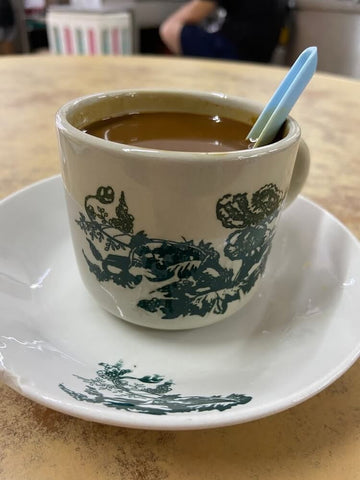
Coffee With Evaporated Milk
1. Kopi-C
Simple black coffee with unsweetened evaporated milk and sugar. The “C” in kopi-C actually traditionally stands for “Carnation”, which is commonly the evaporated milk brand used by most Singaporean kopitiams.
2. Kopi-C Kosong
Black coffee with evaporated milk, minus the sugar. It’s the Singaporean equivalent of a caffè latte (milk and coffee only). Only without the fancy latte art and foamy surface.
3. Kopi-C Peng
Iced black coffee with evaporated milk and sugar.
4. Kopi-C Gau
Strong black coffee with evaporated milk and sugar thanks to its higher coffee concentration.
5. Kopi-C Siew Dai
Black coffee with evaporated milk and less sugar for less sweetness.
6. Kopi-C Gah Dai
Black coffee with evaporated milk and extra sugar for added sweetness.
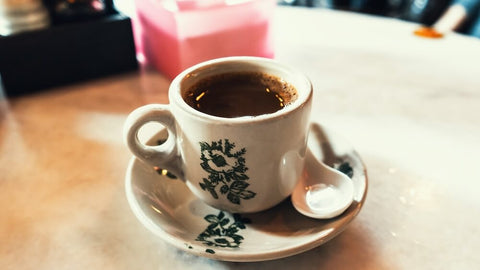
Fun Local Coffee Variations
1. Yuanyang
Classic traditional kopi combined with Chinese tea (typically black tea) which is mixed with condensed milk or evaporated milk, depending on the kopitiam you’re ordering it from. Some places also refer to it as “cham”, which directly means “mix” in the Hokkien dialect.
2. Kopi Tarik
Black coffee with condensed milk and sugar (traditional kopi) made via the “pulling” process, where the kopi is poured back and forth between two stainless steel mugs from a distance which aerates the kopi and gives it a frothy top. It’s the coffee equivalent to the Southeast Asian teh tarik and the local equivalent of a cappuccino.
3. Kopi Gu You
Black coffee made with condensed milk and a generous slab of butter. Think of this as the Singaporean kopitiam version of bulletproof coffee, only this one isn’t keto-friendly since it contains sweetened condensed milk.
4. NesLo
NesLo is an interesting one because it is not exactly kopi in a traditional sense, but rather a combination of coffee (usually Nescafe) and the local favourite malt drink, Milo. Some kopitiams do allow you to substitute Nescafe with kopi - you just have to ask! :)
5. Kopi Ka Koi Neng
Kopi ka koi neng is definitely not for the faint-hearted. It is made by mixing raw egg into piping hot black coffee, followed by vigorous stirring to give it a creamy texture. It’s the decades old drink for labourers to get their added dose of protein and caffeine in the midst of a long day’s work.
Still Confused On What Are The Different Types Of Kopi? Here's A Kopi Terminology Cheat Sheet For You!
Kopi: Coffee (usually served as hot coffee)
O: Without sugar
C: With evaporated milk (not to be confused with condensed milk. Don’t let the “c” throw you off!)
Peng: Iced
Gau: Strong
Po: Weak
Gah Dai: Extra sweet
Siew Dai: Less sweet
Pua Sio: Serve it warm
Di Lo: Extra thick and undiluted
What Is The Difference Between Kopi, Kopi-C, and Kopi-O?
The difference between kopi, kopi-C, and kopi-O lies in two main things;
1) does it contain milk, and
2) if it contains milk, is it condensed milk or evaporated milk?
If it contains milk and it is condensed milk, it is the traditional kopi. If it contains milk and evaporated milk is used instead, then you’ll be looking at kopi-C. But if it does not contain milk, then you’ll have the plain black kopi-O in your hands.
What Is The Difference Between Kopi Di Lo and Kopi Gao?
Kopi Di Lo and Kopi Gao both refer to extra strong coffee. The only difference between them is that Kopi Gao still contains a small quantity of water, while Kopi Di Lo is served without any water added.


